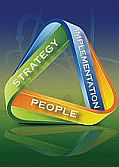Speaker
Simon Hebel
(University of Hamburg)
Description
Atom-Trap-Trace-Analysis (ATTA) provides the capability of measuring the Krypton-85 concentration in microlitre amounts of krypton extracted from air samples of about 1 litre. This sample size is sufficiently small to allow for a range of applications, including onsite spot sampling and continuous sampling over periods of several hours. All samples can be easily handled and transported to an offsite laboratory for ATTA measurement, or stored and analysed on demand. Bayesian sampling methodologies can be applied by blending samples for bulk measurement and performing in-depth analysis as required.
Prerequisite for measurement is the extraction of a pure krypton fraction from the sample. This paper introduces an extraction unit able to isolate the krypton in small ambient air samples with high speed, high efficiency and in a fully automated manner using a combination of cryogenic distillation and gas chromatography.
Air samples are collected using an automated smart sampler developed in-house to achieve a constant sampling rate over adjustable time periods ranging from 5 minutes to 3 hours per sample. The smart sampler can be deployed in the field and operate on battery for one week to take up to 60 air samples.
This high flexibility of sampling and the fast, robust sample preparation are a valuable tool for research and the application of Kr-85 measurements to novel Safeguards procedures.
| Country or International Organization | Germany |
|---|
Author
Simon Hebel
(University of Hamburg)
Co-authors
Friderike Göring
(University of Hamburg)
Gerald Kirchner
(University of Hamburg)
James Hands
(University of Hamburg)
Roland Purtschert
(University of Bern)

